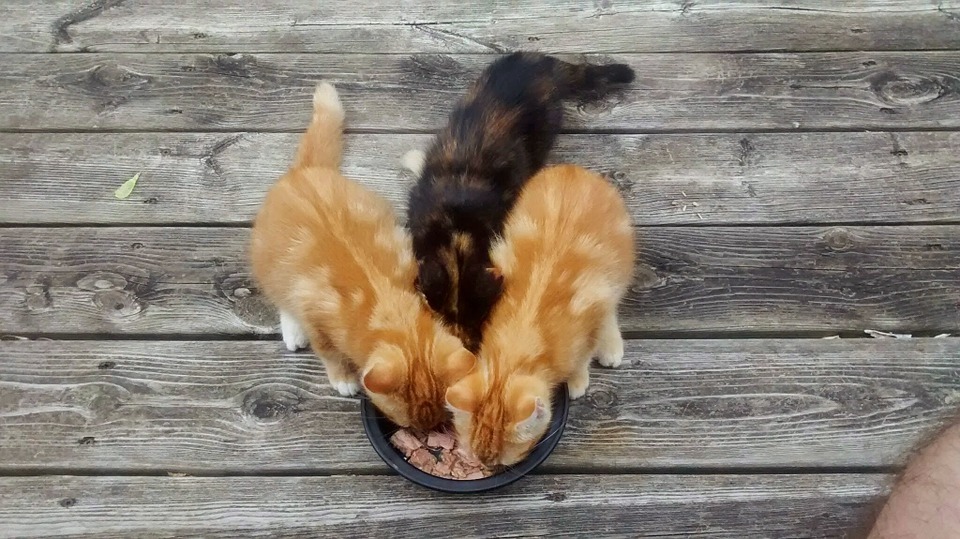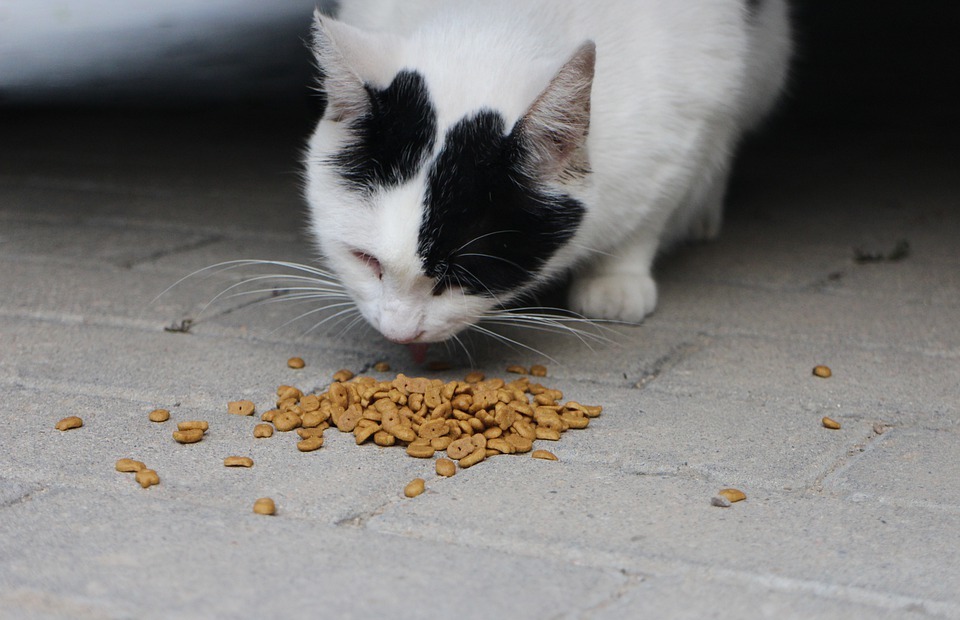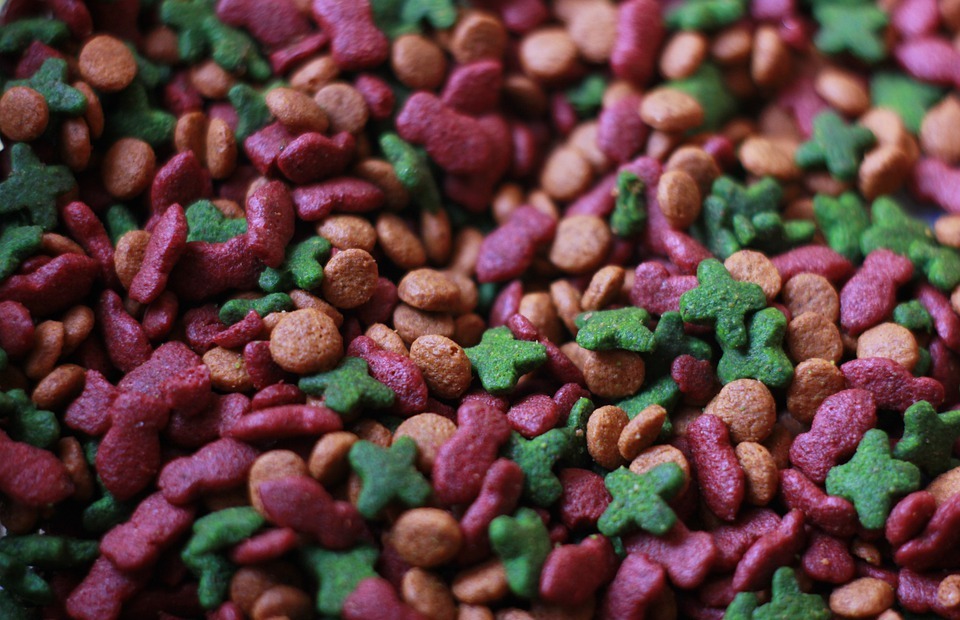This article explores the complex relationship between cats and honey, a seemingly innocuous sweetener that can pose unexpected risks for our feline companions. We'll delve into the nutritional makeup of honey, assess its potential benefits and drawbacks for cats, and provide vet-approved guidance to ensure your furry friend's health and well-being.
Part 1: Unveiling Honey's Composition: A Blend of Sweetness and Complexity

1.1 A Sweet Symphony of Sugars: Fructose and Glucose
Honey's primary constituents are fructose and glucose, simple sugars readily absorbed by the body, providing a quick energy boost. However, this rapid energy release is precisely where the potential problem for cats lies.
1.2 Beyond Sugars: A Spectrum of Additional Components
Beyond sugars, honey boasts a diverse array of compounds, including:
- Enzymes: Honey contains enzymes like diastase, invertase, and catalase. These enzymes contribute to its breakdown and potential health benefits in humans, but their impact on cats is not fully understood.
- Antioxidants: Honey harbors antioxidants, such as flavonoids and phenolic acids, which may combat oxidative stress in humans. However, their effectiveness in cats remains uncertain.
- Trace Minerals: Honey provides minute amounts of minerals like potassium, calcium, and magnesium. These minerals are crucial for various bodily functions, but cats obtain them adequately through their regular diet.
1.3 Honey's Unique Properties: A Complex Chemical Profile
Honey's complexity arises from its intricate composition, encompassing not only sugars but also various enzymes, antioxidants, and trace minerals. This multifaceted nature contributes to its potential benefits in humans, but its effects on cats are less well-defined and often require further research.
Part 2: The Dietary Dilemma: Can Cats Digest Honey?

2.1 Cats: Carnivorous Creatures with Specific Dietary Needs
Cats are obligate carnivores, meaning they thrive on a diet primarily composed of animal-based protein and fat. Their digestive systems are uniquely adapted to efficiently break down these nutrients, not primarily carbohydrates like those found in honey.
2.2 Honey's Digestive Impact: A Potential Source of Trouble
While cats possess the necessary enzymes to digest sugars, their digestive systems are not designed for excessive carbohydrate intake. Consequently, consuming honey can lead to digestive discomfort, including diarrhoea and vomiting, as their bodies struggle to process the high sugar load.
2.3 The Potential for Nutritional Imbalances: A Mismatch Between Needs and Intake
Honey's high sugar content can displace essential nutrients in a cat's diet, leading to nutritional imbalances. This imbalance can result in deficiencies in vital nutrients like protein and fatty acids, crucial for overall health and well-being.
Part 3: The Risks of Honey for Cats: A Cautionary Tale

3.1 The Sugar Trap: Weight Gain, Dental Issues, and More
Honey's high sugar content is a major concern for cats. Excessive sugar intake can contribute to weight gain, leading to obesity and related health problems. It can also promote dental issues, including plaque buildup and tooth decay. In some cases, excessive sugar intake may even increase the risk of diabetes in susceptible cats.
3.2 Gastrointestinal Distress: A Common Side Effect
Honey can cause gastrointestinal upset in cats, leading to diarrhoea, vomiting, and abdominal discomfort. This occurs because their digestive systems are not optimized to handle significant quantities of sugar.
3.3 Yeast Infections: A Potential Complication
Honey's high sugar content can create a favourable environment for yeast growth in the digestive tract. This can result in yeast infections, causing discomfort and potentially leading to complications.
3.4 Pancreatitis: A Serious Risk Factor
In some cats, consuming honey can trigger pancreatitis, a serious inflammation of the pancreas. Pancreatitis can cause severe pain, vomiting, and potentially life-threatening complications.
3.5 Raw Honey: A Source of Potential Toxicity
Raw honey, especially if contaminated, can contain botulinum toxins, which are highly toxic to cats. These toxins can cause muscle weakness, paralysis, and even death.
Part 4: Honey's Potential Benefits for Cats: A Limited Perspective
4.1 Topical Applications: A Cautious Approach
- Wound Healing: Honey's antibacterial and anti-inflammatory properties may offer some benefits for wound healing when applied topically. However, this should only be done under veterinary supervision and for minor wounds, as honey can also attract bacteria and hinder healing if applied incorrectly.
- Paw Pad Care: Honey can temporarily soothe dry, cracked paw pads. But for persistent issues, consulting a veterinarian is essential to address underlying causes and prevent complications.
4.2 Honey and Coat Care: A Limited Role
Adding a tiny amount of honey to a cat's grooming routine might enhance coat shine. However, it should never be ingested, and excessive use can irritate the skin.
Part 5: Choosing Safe Treats for Your Cat: A Vet-Approved Guide
- Low-Sugar Options: Opt for cat-specific treats formulated with healthy ingredients, low in sugar, and appropriate for their nutritional needs.
- Consult Your Veterinarian: Always consult your vet before introducing new treats to your cat's diet, as they can provide tailored advice based on your cat's individual health and needs.
Part 6: Understanding Your Cat's Nutritional Needs: A Foundation for Health
- A Carnivorous Diet: Cats thrive on a diet rich in animal-based protein and fat, meeting their nutritional requirements through a balanced diet of meat and fish.
- Commercial Cat Food: Commercially prepared cat foods are designed to provide cats with the essential nutrients they need, ensuring their overall health and well-being.
Part 7: FAQs about Cats and Honey
7.1 Is it Safe for Cats to Lick Honey?
No, even a small lick of honey can pose risks due to its high sugar content and potential for digestive upset.
7.2 Can I Give My Cat Honey for Coughing?
Honey is not recommended as a cough remedy for cats. Consult a vet for safe and effective treatment options.
7.3 What Happens If My Cat Eats Honey?
If your cat accidentally ingests honey, monitor them closely for any signs of digestive upset, such as vomiting, diarrhoea, or lethargy. If symptoms worsen, contact your veterinarian immediately.
7.4 Can I Use Honey in My Cat's Food?
Adding honey to your cat's food is not recommended. Stick to commercially prepared cat food specifically designed for their nutritional needs.
7.5 Is Raw Honey Safe for Cats?
Raw honey is potentially more dangerous than processed honey, as it can contain botulinum toxins. Avoid giving raw honey to your cat.
7.6 Can Honey Help with My Cat's Allergies?
There is no scientific evidence to support the use of honey for treating cat allergies. Consult your vet for appropriate allergy management strategies.
7.7 Is Honey a Good Source of Energy for Cats?
Honey provides energy, but it is not a healthy or necessary source of energy for cats. Their energy needs are best met through a balanced diet of animal-based protein and fat.
Everyone is watching
-

Are Cat Ribs Flexible? Understanding Their Anatomy
CATS & KITTENSThis article delves into the fascinating world of feline anatomy, exploring the flexibility of cat ribs and ho...
-

Can Cats Eat Bananas? (Everything You Need to Know)
CATS & KITTENSThis article dives into the intriguing question of whether cats can safely enjoy the sweet, yellow fruit, bana...
-

Cat Lifespan: How Long Do Cats Live?
CATS & KITTENSThis comprehensive guide explores the factors influencing the lifespan of our feline companions, providing ins...
-

Can Cats Get COVID-19? What You Need to Know
CATS & KITTENSThis article will delve into the fascinating world of feline COVID-19 susceptibility. We'll explore whether ca...
-

Can Cats Eat Eggs? A Complete Guide to Egg Safety for Your Feline Friend
CATS & KITTENSWhen it comes to treating our furry companions, we all want to ensure we're doing what's best for them. Eggs...
